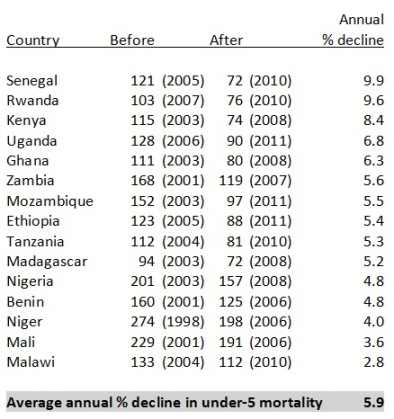Industrial development: World GDP stood in real 2010 dollars at about $19 trillion in 1972 and has tripled to $57 trillion today. Average per capita incomes rose in real dollars from $5,000 to $8,100 today. Just to explore how incomes might evolve between 1972 and 2000, the researchers simply extrapolated the current growth, investment, and population growth rates to calculate GDP per capita for 10 large countries. They stressed these were not “predictions” but added that if one disagreed then one was obligated to specify which factors changed, when and why. A comparison of their extrapolations with actual GDP per capita (in 2010 dollars) finds U.S. GDP per capita $56,000 versus actual $44,000; Japan’s per capita GDP was projected to be $120,000 versus actual $46,000; the now defunct USSR would be $33,000 versus Russia’s $2,200; and China’s per capita income was supposed to grow to $500, but was instead $1,200.
Population: The Limits researchers noted, “Unless there is a sharp rise in mortality, which mankind will strive mightily to avoid, we can look forward to a world population of around 7 billion persons in 30 more years.” In addition, they suggested that in 60 years there would be “four people in the world for everyone living today.” In fact, average global life expectancy rose from 60 to nearly 70 years. On the other hand, the global fertility rate (the average number of children a woman has during her lifetime) fell from about 6 per woman in 1970 to 2.8 today and continues to fall.
[. . .]
Food supplies: According to the data from the Food and Agriculture Organization, global food production has more than tripled since 1961, while world population has increased from 3 billion to 7 billion. This means that per capita food has increased by more than a third. The latest figures from the United Nations show that as world population increased by a bit over 10 percent between 2000 and 2009, global food production rose by 21 percent.
[. . .]
Nonrenewable resources: Probably the most notorious projections from the MIT computer model involved the future of nonrenewable resources. The researchers warned: “Given present resource consumption rates and the projected increase in these rates, the great majority of currently nonrenewable resources will be extremely expensive 100 years from now.” To emphasize the point they pointed out that “those resources with the shortest static reserve indices have already begun to increase.” For example, they noted that the price of mercury had increased 500 percent in the last 20 years and the price of lead was up 300 percent over the past 30 years. The advent of the “oil crises” of the 1970s lent some credibility to these projections.
To highlight how dire the situation with nonrenewable resources was, the MIT researchers calculated how quickly exponential consumption could deplete known reserves of various minerals and fossil fuels. Even if global consumption rates didn’t increase at all, the MIT modelers calculated 40 years ago that known world copper reserves would be entirely depleted in 36 years, lead in 26 years, mercury in 13 years, natural gas in 38 years, petroleum in 31 years, silver in 16 years, tin in 17 years, tungsten in 40 years, and zinc in 23 years. In other words, most of these nonrenewable resources would be entirely used up before the end of the 20th century.
[. . .]
Environment: In most of the Limits model runs, the ultimate factor that does humanity in is pollution. In their model pollution directly increases human death rates and also dramatically reduces food production. In fact, as the world economy has grown, global average life expectancy has increased from 52 years in 1960 to 70 years now. It must be acknowledged that globally, pollution from industrial and agricultural production continues to rise. But the model assumed that pollution would increase at exponential rates. However, many pollution trends have not increased exponentially in advanced countries.
Consider that since 1970, the U.S. economy has grown by 200 percent, yet the levels of air pollutants regulated by the federal government have fallen by nearly 60 percent. For example, in both the U.S. and the European Union sulfur dioxide emissions have dropped by nearly 70 percent since 1990. Recent data suggests that sulfur dioxide emissions even from rapidly industrializing China peaked in 2006 and have begun declining. Earlier studies cite evidence for a pollution turning point income threshold (purchasing power parity) of around $10,000 for demands to reduce this form of air pollution.




